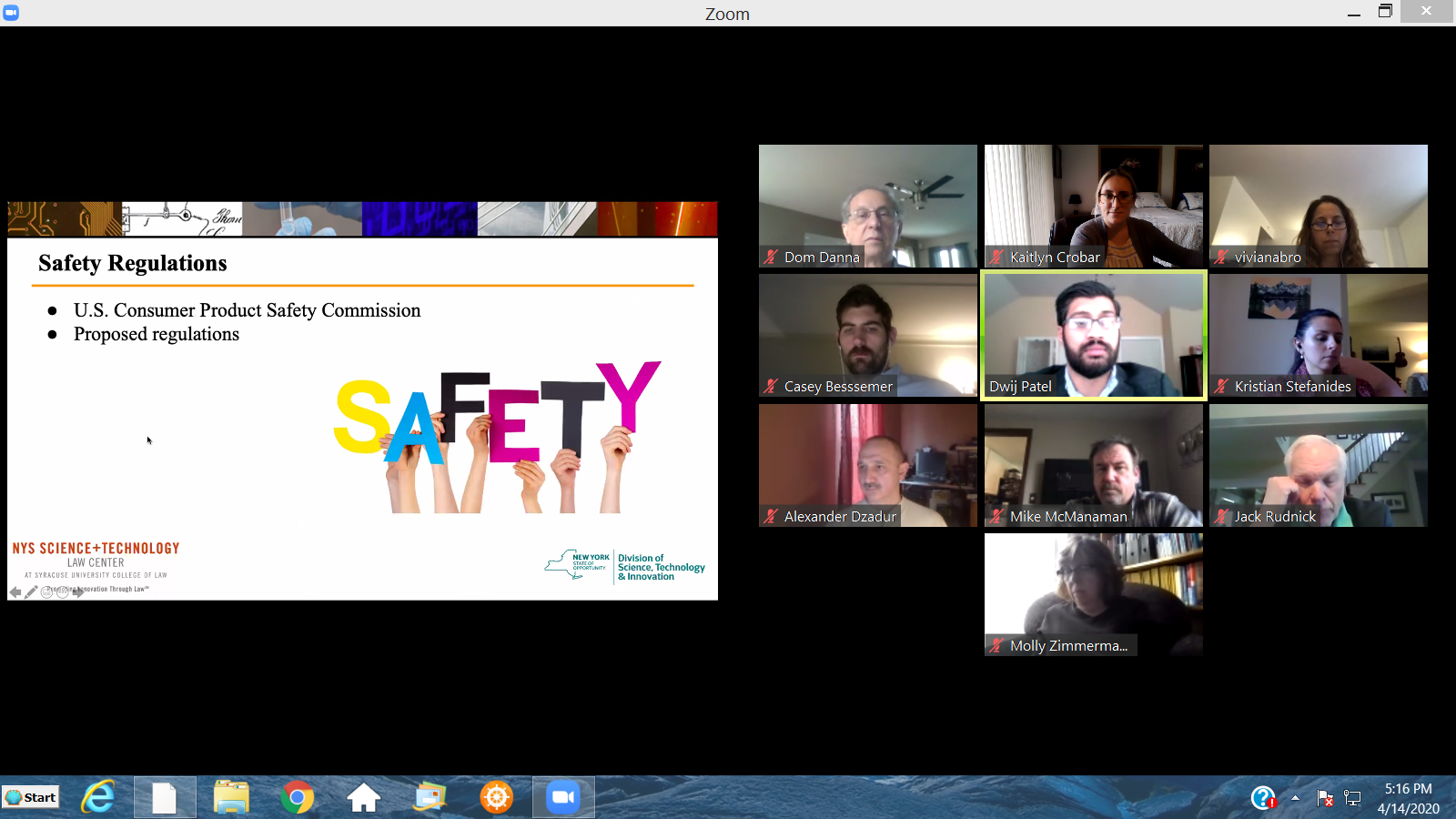By: Julia Scaglione
The Innovation Law Center (ILC) students and professors have wrapped up a semester’s work on a dozen research projects for a variety of clients. The impact of COVID-19 left the ILC facing uncharted territory, as the research had to be presented in a virtual environment. Nevertheless, the students, professors and clients were able to came together virtually to finish the semester strong.
Adapting to new standards, the clients received their final presentations via video conferencing platforms such as Zoom or Collaborate. While it was non-traditional, the students stayed positive throughout the process. “Although it was somewhat sudden to shift from preparing for in-person presentations to virtual presentations, the experience was a good one,” says student Sohela Suri. “In practice, we will likely be utilizing technology to communicate with colleagues and clients regularly, so it is very unique to have been able to experience and conduct a presentation via Zoom with a real client.”
In addition to the benefit of experience, some students preferred the virtual presentation format. “Presenting in this format is better for helping show clients specific references online quickly and easily,” says Rickson Galvez.
The virtual format also provided clients the opportunity to extend the presentations to additional members of their teams. “COVID-19 has unexpectedly increased the audience size for our presentations. Instead of presenting to one or two people, my group has been able to include up to six people from the client’s team that were interested in our research,” states Senior Research Associate (SRA) Alison Burrows.
Transitioning to online presentations had its challenges, of course. Student Sehseh Sanan says that she had to be ultra-aware of her surroundings, while Dwij Patel reflects on the lack of physical presence. “One challenge that was presented to me was engaging with the audience. I know that I am still able to see the clients and my peers in Zoom, but aside from facial expressions, there is almost no way to see other forms of body language to show how the audience is engaging with me.”
While presenting remotely was an adjustment, the presentations were strong and seamless. “To no surprise, our student research associates Kaitlyn Crobar, Viviana Bro, and Dwij Patel rose to the occasion without issue in providing high-quality presentations to this semester’s clients. Despite not being able to meet in person, the students maintained a collaborative team effort, and they impressed our team leaders with how well they transitioned, as well as our clients who were excited to hear that the work on their projects would not be stopped during the pandemic,” states SRA Kristian Stefanides.
Overall, the virtual presentations benefited all parties and were new, beneficial experiences for the ILC. “Our clients sent us a nice thank you email right after our presentation, and they seemed to enjoy it,” says Sohela Suri.
Moving forward, there are a lot of unknowns as the pandemic and lockdown procedures continue. Nonetheless, the ILC is enthusiastic about operating in this new normal. “When we started working online, I was a little apprehensive,” says professor Dominick Danna. “But once I got my technical bugs worked out, the classes went very smoothly. Seeing all the faces on the screen at one time and everyone speaking in-turn made the classes very effective.”

